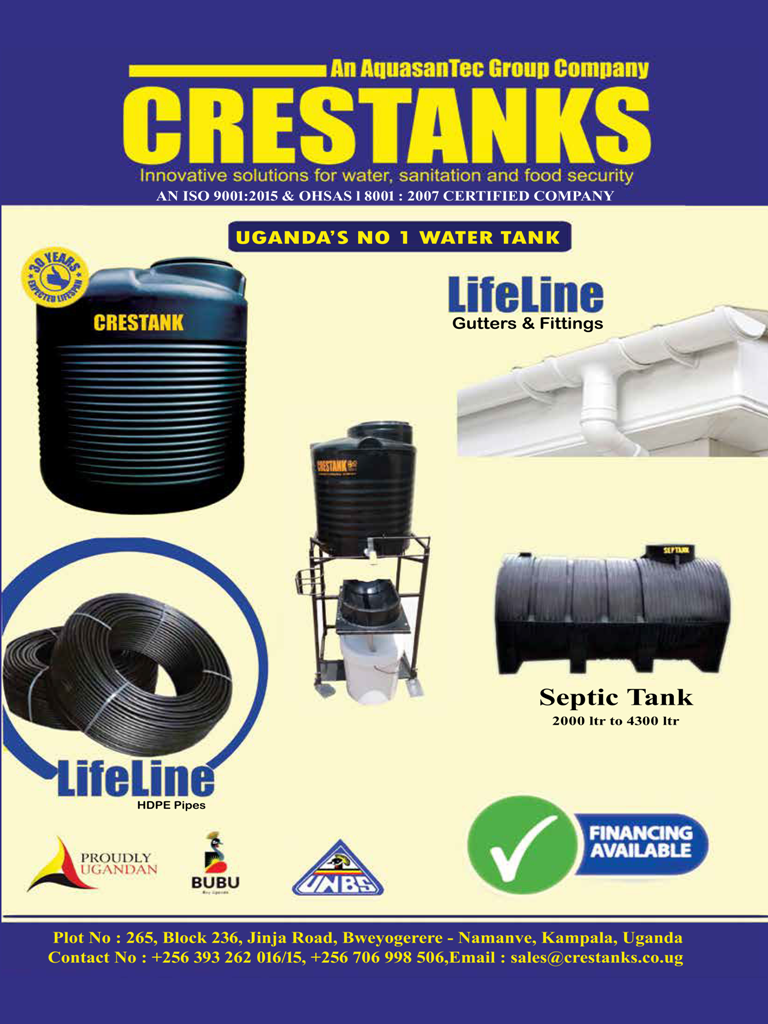The funding for water and sanitation in the 2021/22 financial year has dropped by sh106.65b.
Budget statistics indicate that whereas the finance ministry dedicated sh648.3b for both rural and urban water activities in the 2021/22 financial year, the figure is far less than what was allocated for the same activities a year before.
During the financial year of 2020/21, finance allocated a total of sh754.95b for both rural and urban water/sanitation activities.
Here is how the money was divided for rural and urban water activities.
Rural Water Supply and Sanitation Programme (2020/21):
The total capital investment of sh133.95b was provided for construction of nine gravity flow schemes, Retention for 3 GFS, one Highway Sanitation facility; 40 solar powered Water Supply systems, drilling 285 hand pump wells, 100 production wells, 70 large diameter wells.
For urban water supply and sanitation programme, government allocated a total capital investment sum of sh621b in the 2020/21 financial year.
The money was meant to facilitate the construction of 30 Water Supply and Sanitation systems; Rehabilitation of the Piped Water Supply and Sanitation Systems, Complete construction of 4 FSM, 10 Feasibility Studies, Commence Development and Complete Bulk Water Transfer Master Plan, Detailed Designs for 15 Water Supply and Sanitation Systems Developed, and have Public and Institutional Sanitation Facilities constructed in 5 Towns.
2020/21 targets
Some of the water and sanitation targets for 2020/21 included increasing provision of water for production through development of multi-purpose bulk water storage and supply systems with the involvement of all stakeholders as appropriate.
- “To increase water supply coverage in rural areas while ensuring equity through providing at least each village with one safe and clean water source and where technically feasible piped water options (gravity flow systems, solar pumped boreholes and surface treated systems) will be considered,” the budget framework paper indicated.
- “To promote improved sanitation services in rural and urban areas including the promotion of hand-washing with soap.
- To increase water supplies and sewerage services in small towns, large towns, municipalities and cities focusing on the areas earmarked for industrial parks,” the paper added.
- The other target then was “To improve water resources management to ensure adequate quantity and quality for the various uses focusing on compliance to existing laws and regulations on the use of the resources at all levels.”
2021/22 budget
While reading the 2021/22 national budget speech, Amos Lugoloobi, who was the parliamentary budget committee chairperson in the 10th Parliament highlighted this year’s theme as, “Increasing household incomes and improving the quality of life of Ugandan.
“Safe water coverage in rural and urban areas is estimated at 68% and 71% respectively. Consequently, 48,000 villages, representing 70% of all villages, have at least a source of water,” Lugoloobi said.
“In urban water supply, National Water and Sewerage Corporation has extended 954km of water mains and 49,000 new customers have been connected. In addition, 1,506 Public Stand posts have been installed, which serve an estimated 300,000 people,” he added.
He informed the Speaker that access to safe water and sanitation was important in improving the wellbeing of the population.
“The target is to increase the coverage of safe water supply in rural areas to 81% and to 100% in urban areas by 2025,” he said.
Lugoloobi promised that at a minimum the Government would ensure that every village in underserved districts has at least one safe water source, as well as promote improved sanitation. “To this end, sh124.9b has been provided for rural water, and sh523.4b for urban water,” he added.
Eng. Joseph Oriono Eyatu, the Acting Director Water Development, said the reduction will not affect the ministry’s projects.
“There are some projects we were exiting. So that is why funding reduced. We are working on arrangements for new projects. We are still in negotiations,” he said.
Eyatu said the reductions were on the side of donors and not by the government.
“Actually the government added us some money,” he added.
He said since water is essential in the fight against COVID-19, the Government had decided not to disconnect any defaulters.
“We are not disconnecting people who don’t pay but we encourage them to pay. COVID needs water for washing with soap,” he added.
“We also set up SOPs for boreholes.”



















